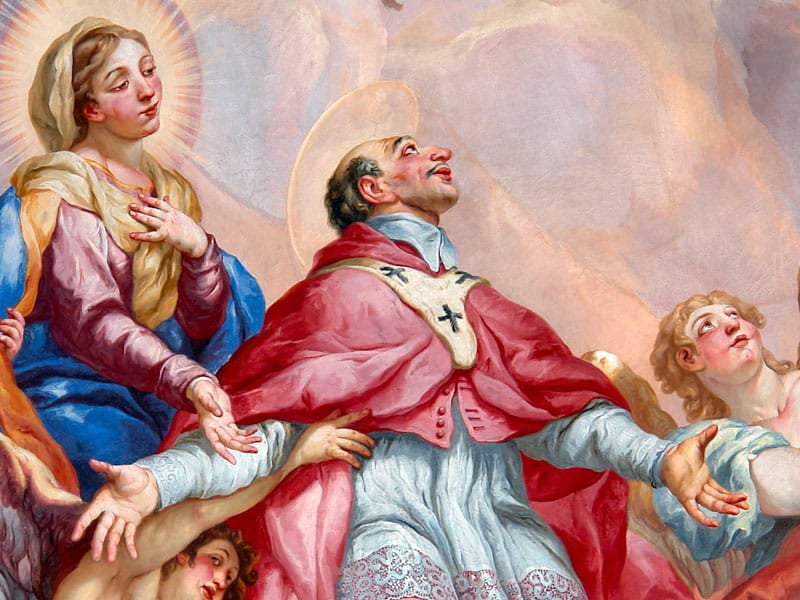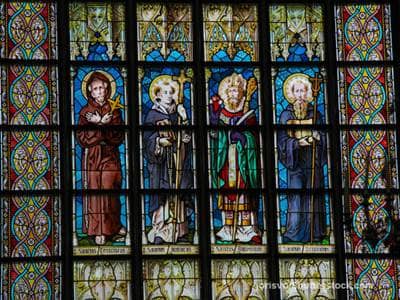St. Charles Borromeo (1538-1584)

The name of St. Charles Borromeo is associated with reform. He lived during the time of the Protestant Reformation, and had a hand in the reform of the whole Church during the final years of the Council of Trent.
Although he belonged to a noble Milanese family and was related to the powerful Medici family, he desired to devote himself to the Church. When his uncle, Cardinal de Medici, was elected pope in 1559 as Pius IV, he made Charles cardinal-deacon and administrator of the Archdiocese of Milan while he was still a layman and a young student. Because of his intellectual qualities he was entrusted with several important offices connected with the Vatican and later appointed secretary of state with full charge of the administration of the papal states. The untimely death of his elder brother brought Charles to a definite decision to be ordained a priest, despite relatives’ insistence that he marry. He was ordained a priest at the age of 25, and soon afterward he was consecrated bishop of Milan.
Because of his work at the Council of Trent he was not allowed to take up residence in Milan until the Council was over. Charles had encouraged the pope to renew the Council in 1562 after it had been suspended 10 years before. Working behind the scenes, St. Charles deserves the credit for keeping the Council in session when at several points it was on the verge of breaking up. He took upon himself the task of the entire correspondence during the final phase.
Eventually Charles was allowed to devote his time to the Archdiocese of Milan, where the religious and moral picture was far from bright. The reform needed in every phase of Catholic life among both clergy and laity was initiated at the provincial council of all his suffragan bishops. Specific regulations were drawn up for bishops and other clergy: If the people were to be converted to a better life, these had to be the first to give a good example and renew their apostolic spirit.
Charles took the initiative in giving good example. He allotted most of his income to charity, forbade himself all luxury and imposed severe penances upon himself. He sacrificed wealth, high honors, esteem and influence to become poor. During the plague and famine of 1576 he tried to feed 60,000 to 70,000 people daily. To do this he borrowed large sums of money that required years to repay. When the civil authorities fled at the height of the plague, he stayed in the city, where he ministered to the sick and the dying, helping those in want.
Work and the heavy burdens of his high office began to affect his health. He died at the age of 46.
-
St. Martin I (d. 655)
-
St. Conrad of Parzham (1818-1894)
-
St. John Vianney (1786-1859)
-
St. Jerome (345-420)
-
St. Claude la Colombière (1641-1682)
-
Sts. Peter and Paul (d. 64 & 67)
-
Sts. Cosmas and Damian (d. 303?)
-
St. Matthias
-
Servant of God John of Monte Corvino (1247-1328)
-
Blessed John Duns Scotus (c. 1266-1308)


